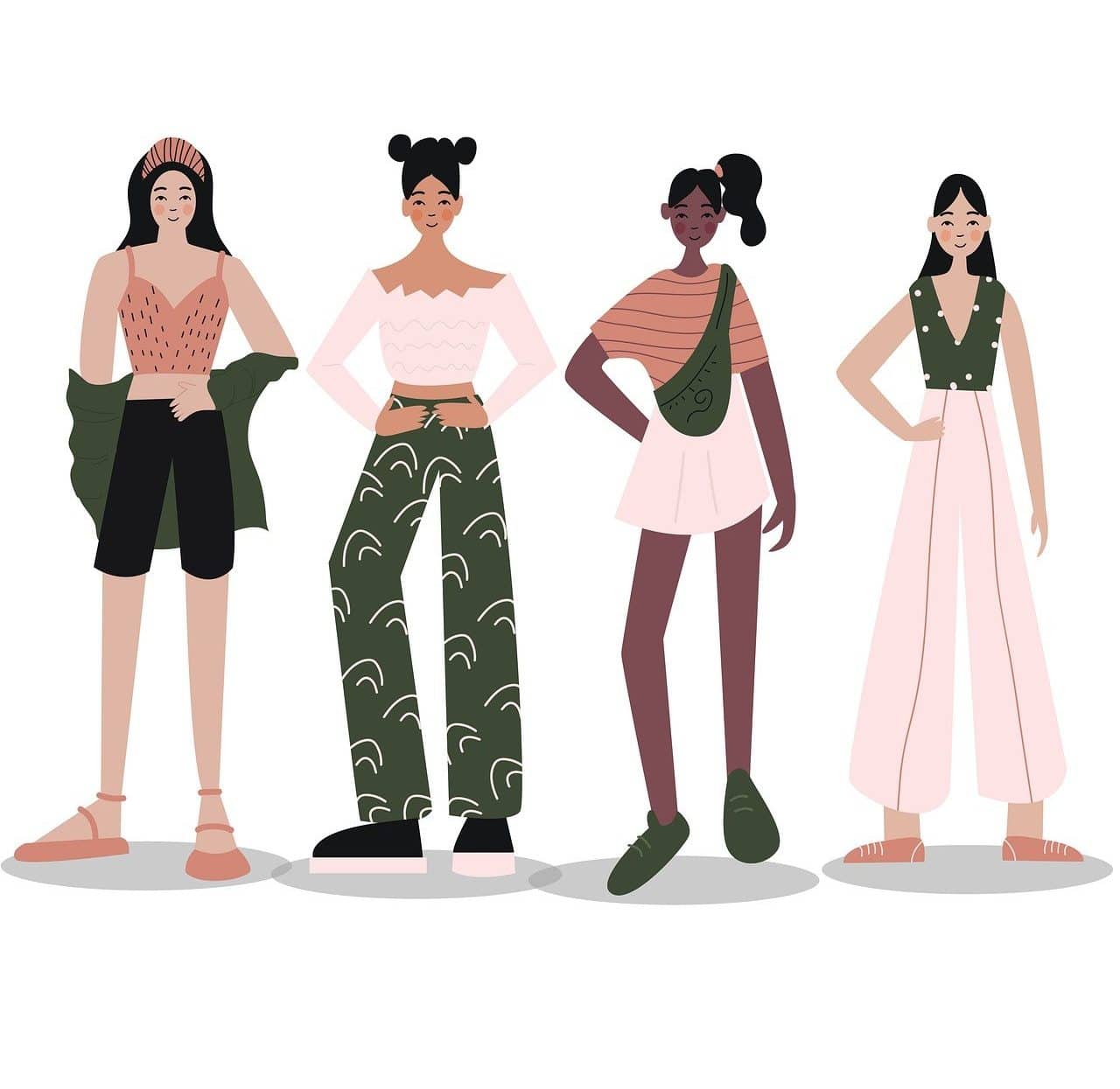
Sustainable fashion seeks to respect human rights (which is why it gives importance to work ethics) and the planet as a whole (which is why it applies ecological practices).
Sustainable fashion is a concept linked to a sustainable and planet- friendly lifestyle that involves both manufacturers and consumers.
In the process of making products that are friendly to the natural environment, both the social and environmental impact is taken into consideration, contemplating the carbon footprint related to the entire useful life cycle of those elements intended for clothing or the improvement of an outfit . In addition, natural dyes and organic materials are prioritized to promote the well-being and safety of users, since the result is pieces free of dangerous chemicals and toxins that harm health and can cause irritations or allergies, among other problems.
It is a movement connected to fair trade , ethics and environmental sustainability , issues that aim to consolidate a circuit based on decent working conditions, responsible consumption and recycling or reuse practices.
Characteristics of sustainable fashion
Sustainable fashion , typical of a philosophy driven by justice , sustainability , responsibility , clarity , information and ethics defined in English as Slow Fashion , brings together characteristics that make it unique and convenient.
In this area, both the durability of garments and their quality are pursued based on low-impact production . Transparency and traceability are other axes of sustainable fashion so that society can know where and how raw materials come from, how they are transferred, what are the techniques or processes that lead to the finished product and how they are processed. presents and reaches the final consumer.
Those involved in sustainable fashion are committed to the care and responsible use of resources, advocating the upcycling of clothing , low ecological impact processes and the human and labor valuation of those who in one way or another intervene in some instance of the textile business. That is why they implement strategies and methods to guarantee sustainable water management , the use of renewable energy sources in production and the reduction of emissions in transportation .

Training conscious, responsible and careful consumers is a challenge that sustainable fashion seeks to successfully overcome by proposing garments created from a commitment to caring for the natural environment and people's rights.
Importance
Sustainable fashion is important, basically, because it aspires to transform the collective consumer mentality with equitable, fair, responsible, respectful and ecologically friendly actions.
More and more actors in the textile industry and users are interested in this relatively new concept in fashion due to the economic, labor and social benefits it brings. Events, platforms, specialized fairs and even sustainable fashion influencers are even growing at a sustained pace.
Within this framework, the number of companies or brands that are entering the sustainable fashion sector, venturing into ethical fashion, is multiplying worldwide. There are also increases in the number of conversations , publications , audiovisual content , courses and workshops that revolve around it.
In order to instruct and guide professionals in the journalistic field focused on the universe of designers, catwalks, parades and new trends, for example, from the Fashion Industry Charter for Climate Action sponsored by UN Climate Change and the United Nations Environment Program (UNEP) the Sustainable Fashion Communication Manual was launched.

Within the framework of sustainable fashion projects and ventures, caps and hats, among other accessories, are emerging, which are designed by hand under the guidelines of ethical fashion, fair trade and the circular economy.
Examples of sustainable fashion
Fortunately, more and more examples of sustainable fashion are coming to light. There exists in Spanish territory, to detail a specific case as a reference, a brand named Tiralahilacha that is committed to the production of garments classified as sustainable , ethical and timeless, which are designed in Barcelona and manufactured responsibly in India . Dyes that imply a low ecological impact , organic cotton and packaging made with cardboard and recycled paper are used in this company that aims to put an end to the dynamic of rapid disposal (typical of the culture of waste that installs the idea of using and throwing away). .
In Peru , meanwhile, FUSSION was born, a venture that generates sustainable fashion from the use of plastic bags , materials that are recycled by hand to prevent their reaching the sea. This project involves people who contribute their grain of sand by collaborating with the conservation of the oceans by working with resources that, otherwise, would worsen the pollution of the Earth . The brand, according to the data published on its website, is based on the Zero Waste trend and the guidelines of the circular economy in fashion .
It is also worth discovering the work of Gisela Fortuna , who after graduating from the University of Buenos Aires in fashion and textile design has continued training and gaining experience in the sustainable design segment. From their work, commitment and creativity , Zero Waste Fashion has emerged, a collection and methodology of technological, experimental and sustainable production.
